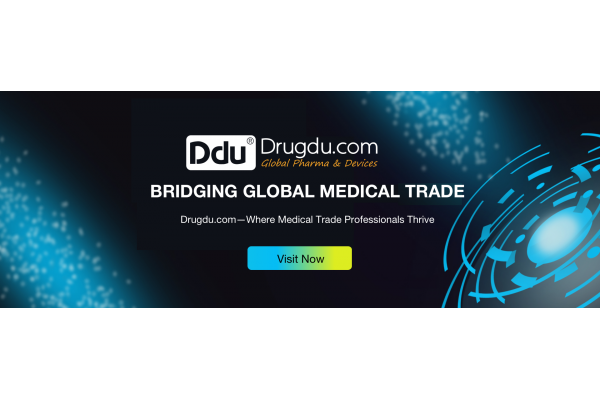【EXPERT Q&A】What are the main contents of compliance review for enterprises?
August 4, 2025
Source: drugdu
 215
215
Drugdu.com expert's response:
Conducting compliance reviews is a critical step for enterprises to ensure their operations align with laws, regulations, industry standards, and internal rules and regulations. Its primary aim is to mitigate legal risks, safeguard corporate reputation, and promote sustainable development. The main areas covered by compliance reviews include laws and regulations, industry norms, internal systems, data protection and privacy, supply chain management, financial and tax compliance, labor and employment practices, environmental protection, anti-corruption and business ethics, and international trade compliance, among others. Here are the specifics:
I. Compliance Review of Laws and Regulations
National Laws and Regulations: Examine whether the enterprise's business operations comply with national laws, administrative regulations, local ordinances, and other requirements, such as the Company Law, Contract Law, Labor Law, and Environmental Protection Law.
Industry Regulatory Requirements: For specific industries (e.g., finance, healthcare, food, and pharmaceuticals), review compliance with special regulations set by industry regulatory bodies, such as capital adequacy requirements in the financial sector and drug registration and approval processes in the healthcare industry.
II. Compliance Review of Industry Norms and Standards
Industry Standards: Verify whether the enterprise's products or services meet industry technical standards, quality standards, safety standards, and other relevant criteria, such as ISO certification systems and industry safety norms.
International Standards: For multinational corporations or export-oriented enterprises, review compliance with internationally recognized standards (e.g., International Financial Reporting Standards—IFRS) and specific requirements of target markets.
III. Compliance Review of Internal Systems and Processes
Corporate Charter and Rules and Regulations: Ensure that the enterprise's operations adhere to its corporate charter, shareholders' agreements, board resolutions, and other internal documents.
Business Process Compliance: Examine whether key business processes (e.g., procurement, production, sales, and finance) follow internal approval authorities, operational norms, and risk control measures.
IV. Compliance Review of Data Protection and Privacy
Data Security: Check whether the enterprise has established a data security management system to prevent data breaches, tampering, or unauthorized access, in compliance with requirements such as the Cybersecurity Law and Data Security Law.
Privacy Protection: Review whether the enterprise's handling of personal information complies with privacy protection regulations (e.g., the Personal Information Protection Law), including aspects such as user consent, data minimization, and cross-border data transfers.
V. Compliance Review of Supply Chain Management
Supplier Management: Assess the compliance of suppliers, including their qualifications, production conditions, labor rights protection, and environmental measures, to avoid连带 liability arising from supplier violations.
Supply Chain Transparency: Ensure traceability of supply chain information to prevent the use of conflict minerals, child labor, or forced labor and other violations.
VI. Compliance Review of Financial and Tax Matters
Financial Reporting: Review whether financial statements are truthful, accurate, and complete, in compliance with accounting standards (e.g., Chinese Accounting Standards for Business Enterprises or International Financial Reporting Standards).
Tax Compliance: Check whether the enterprise complies with tax laws, including tax calculation, declaration, payment, and the legality of tax planning, to avoid tax evasion risks.
VII. Compliance Review of Labor and Employment Practices
Labor Contracts: Ensure that the signing, modification, and termination of labor contracts comply with provisions in the Labor Law and Labor Contract Law.
Labor Rights Protection: Review whether the enterprise provides legal working conditions, salaries and benefits, social insurance, and labor protection measures to avoid labor disputes.
VIII. Compliance Review of Environmental Protection
Environmental Regulations: Check whether the enterprise complies with environmental protection laws and regulations, such as requirements for pollution discharge permits, environmental impact assessments, and waste disposal.
Sustainable Development: Assess whether the enterprise adopts environmental protection measures to reduce pollution emissions and promote green production, in line with ESG (Environmental, Social, and Governance) standards.
IX. Compliance Review of Anti-Corruption and Business Ethics
Anti-Bribery Policies: Review whether the enterprise has established anti-bribery and anti-corruption mechanisms to prohibit commercial bribery, interest transfer, and other misconduct.
Business Ethics: Evaluate whether the enterprise adheres to principles of fair competition and honesty in business ethics, avoiding unfair competition or fraudulent practices.
X. Compliance Review of International Trade (if applicable)
Import and Export Controls: Check whether the enterprise complies with import and export control regulations, such as customs declarations, duty payments, and lists of prohibited or restricted import/export goods.
International Sanctions: Assess whether the enterprise is involved in international sanctions lists to avoid transactions with sanctioned countries, regions, or entities.

Read more on
- 【EXPERT Q&A】Can multiple manufacturing enterprises be entrusted to produce medical devices? March 4, 2026
- API Is Not Just a Cost – It’s Your Ticket to Global Markets March 3, 2026
- 【EXPERT Q&A】What factors should be given priority consideration in the benefit-risk assessment of medical devices? March 2, 2026
- 【EXPERT Q&A】How can the compliance assessment of in vitro diagnostics (IVDR) in the European Union be carried out in a standardized and efficient manner? February 27, 2026
- 【EXPERT Q&A】How to apply for the classification and definition of medical devices? February 25, 2026
your submission has already been received.
OK
Subscribe
Please enter a valid Email address!
Submit
The most relevant industry news & insight will be sent to you every two weeks.



